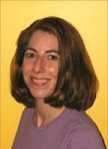

|
Writing a Used Bookstore Business Plan
|
|
The next three sections of the sample business plan for Fiction Addiction are included below. Below each section, I've included comments in brackets discussing other ways you could handle the section, areas to consider, etc. The remainder of the plan will follow in part IV of this article. |

|
4.0 Market Analysis Summary
The used book market has only recently started to be studied, but it seems clear that the marriage of used books and the Internet has been wildly successful. The Book Industry Study Group reports that in 2004, used book sales topped $2.2 billion and represented 8.4% of total consumer spending on books, with much of the growth coming from online channels.
A similar 2004 study by Book Hunter Press found that online sales grew at a time when used book sales in general dropped 7-8% for existing dealers. For brick-and-mortar stores, in-shop sales generated 61.16% of total sales and online sales generated an additional 33.01% of total sales for open shops.
We believe that the recent drop in used book sales found in the Book Hunter Press study can be attributed to the decrease in average selling price for many common books due to the advent of the Internet and its accompanying price transparency. The Internet has also dropped the barriers to entry to the used book business and many online-only book dealers have sprung up, leading to an increased supply, which in turn depresses prices further.
The good news is that prices for the truly rare volumes seem to have gone up, which suggests that the industry as a whole is simply going through a period of turbulence and adjustment. As the Book Hunter Press report states: "With just over half of all used book sales originating from the Internet, there can be no question that online sales have drawn sales away from open shops. But, with 33% of all store sales coming from online sales, there are two ways of looking at how the Internet is likely to affect the future of open shops: Online sales could lead to the slow but steady demise of the traditional used bookstore, or open shops could continue to adjust their overall marketing plan to reflect the constantly changing used book market - e.g., change the extent to which they sell online and through other selling venues as well as change their inventory mix and/or their pricing structure."
It seems apparent that in order to succeed as a used bookstore, Fiction Addiction must concentrate on online sales as well as those to local customers. We believe that there is a synergy between the two businesses. Building up a local customer base takes time and/or advertising, whereas the online services such as ABE, Alibris and Amazon have already invested that time and money for us and thus they should be an immediate source of income for us. Also, by selling online we will be able to accept a wider-range of inventory from our customers than we would if just selling to the local market. This should promote goodwill among our customers as well as enforcing customer loyalty through their credit balance.
Another positive to note is that the used book business is somewhat of a recession-proof business. In slow economic times, book buyers who would usually shop at a new bookstore chain seek bargains via used bookstores. Or those who would be vacationing in Europe are instead stocking up on books to take to the beach.
Looking to the future, Baby Boomers - an extremely literate generation known for their book buying - will soon begin to retire and many will have to deal with lower incomes simultaneously with more leisure time. They will be ideal customers for the used book business.
Book buying is closely correlated with education. Greenville County has the largest public school system in the state - approximately 60 private schools - and is in close proximity to 9 universities and colleges. Greenville, recognized as a business, high-tech, manufacturing, and engineering center, is South Carolina's most populous county. Future growth prospects are very good as Greenville is centrally located between Atlanta and Charlotte, two of the largest cities in the Southeast.
Greenville has supported a paperback exchange (The Carolina Book Rack) for over twenty years. The outlying towns of Greer and Simpsonville each have a similar shop. An antiquarian store located in downtown Greenville, Bentley's Bookshop, recently closed its doors. But conversations with the owner revealed that the store closed when it lost its lease and the owner decided she wanted a change of pace, not due to slow sales. With the area's growth over the past twenty years and the recent closing of Bentley's, it seems like the perfect opportunity to open a general used bookstore in the Greenville area that carries both paperbacks and hardcovers.
[When analyzing the used book market, you want to consider the market in general and then the particular area of the country where you are planning to locate. I wasn't able to find anything more recent than the 2004 BISG study, but as the market grows more studies are sure to come. There is a strong correlation between education and literacy, so anything that shows your area is well educated is a plus - for example, if you can show that the libraries are well used and supported, etc.]
>>>>>Click here for page two>>>>
Questions or comments?
| Forum
| Store
| Publications
| BookLinks
| BookSearch
| BookTopics
| Archives
| Advertise
| AboutUs
| ContactUs
| Search Site
| Site Map
| Google Site Map
Store - Specials
| BookHunt
| BookShelf
| Gold Edition & BookThink's Quarterly Market Report
| DomainsForSale
| BookThinker newsletter - free
Copyright 2003-2011 by BookThink LLC
Contact the editor, Craig Stark
editor@bookthink.com

|